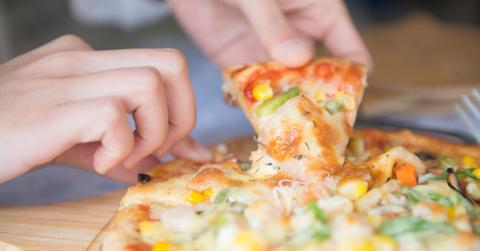Schools Cut Back On Cafeteria Waste By Encouraging Students To Share Leftovers
A program in Florida is figuring out how to produce the least amount of waste while making sure the most amount of people get fed.
Updated May 19 2019, 2:19 p.m. ET
The federal school lunch program demands that kids pick a certain number of items to put on their tray as they move through the cafeteria, according to the Orlando Sentinel. But anyone who has ever spent time with kids during a meal know that getting a child to eat something is considerably harder than getting them to put it on their plate. Lots of food ends up in the trash, creating excess waste.
At the same time, there are kids who can't afford school lunch, or who have limited resources at home for after-school snacks and meals. There are even disturbing stories of some cafeteria workers throwing out full meals in front of children due to unpaid lunch bills.
About 20 schools in Orange County, Florida, are trying a new experiment to cut down on the amount of food that goes to waste and the number of children going hungry. They've established "share tables," where kids can put anything from their meal that they don't want to eat, and other kids can grab what they want to take home or eat for lunch as well.
Excess food from the share tables are picked up by local churches, who then distribute it to the homeless from their food pantries.
Pastor Stan Reinemund of Redeemer Lutheran Church told the Orlando Sentinel that without the school's program the food would "literally go in the dumpsters."
School officials also say the share table program helps with balancing food intake according to age, as kindergarteners can rarely finish big meals, while older kids want second and third helpings. It's also been a benefit to custodians, as the kids are less inclined to mess around with their food when they know it can be put on the share table later.
It's also a great tool for learning; 40 percent of food goes to waste in the United States every year, and that percentage is roughly similar between children and adults, according to EcoWatch. Teaching kids to consider their food waste is a great lesson to learn early.
